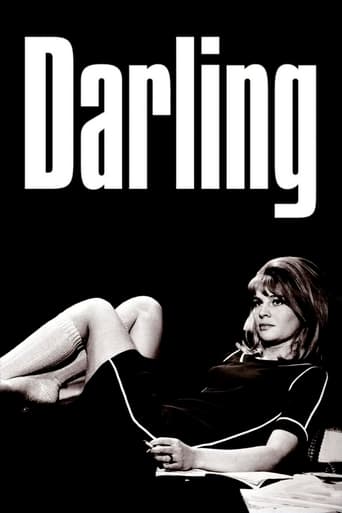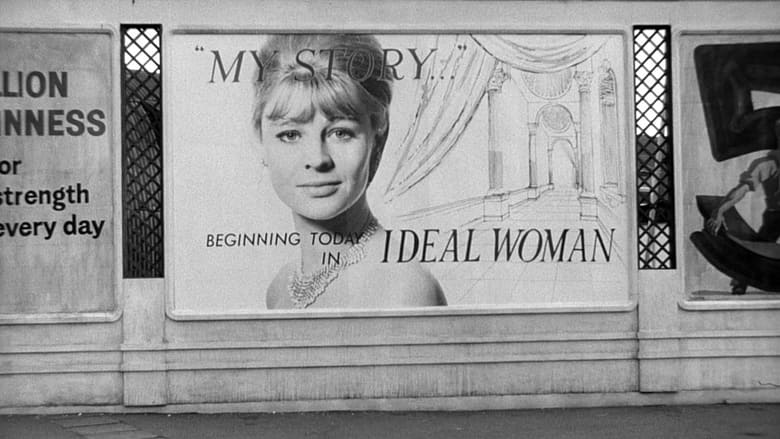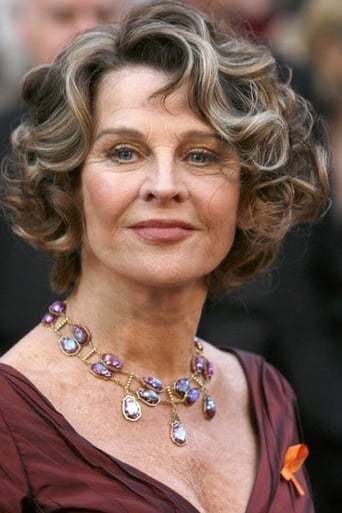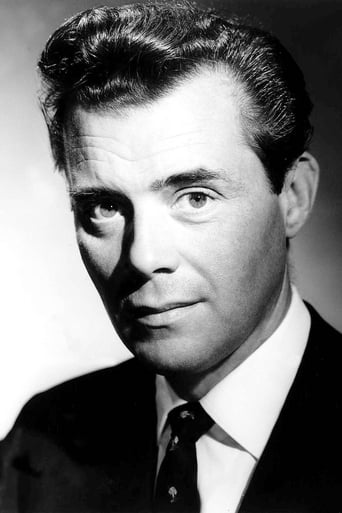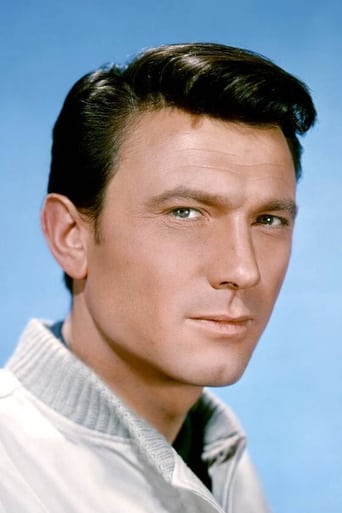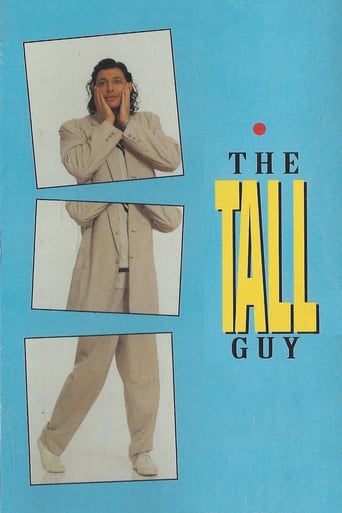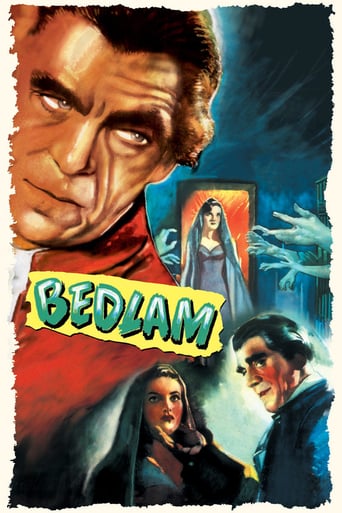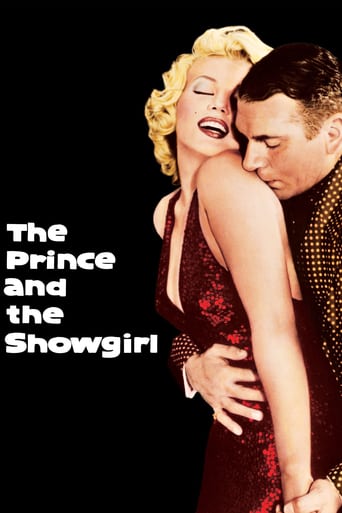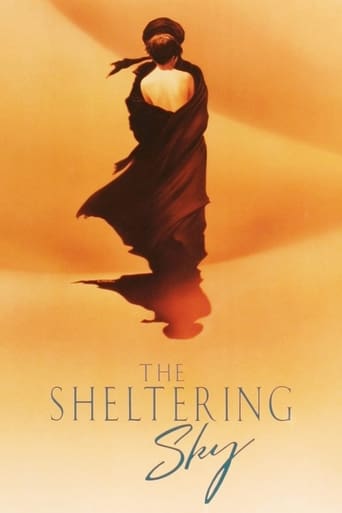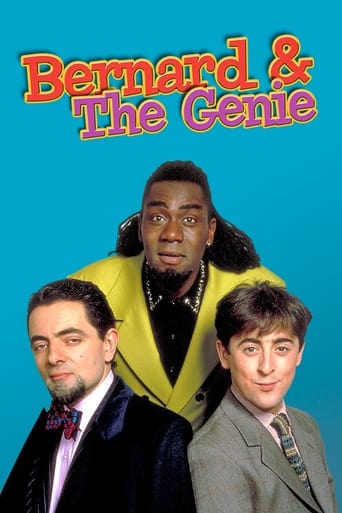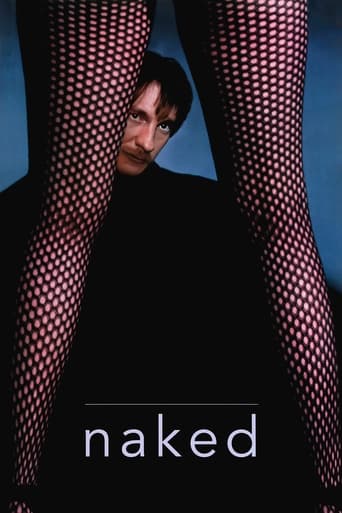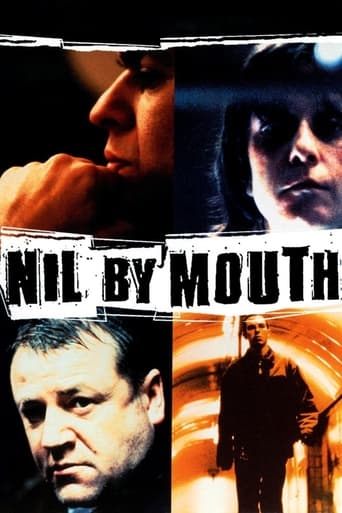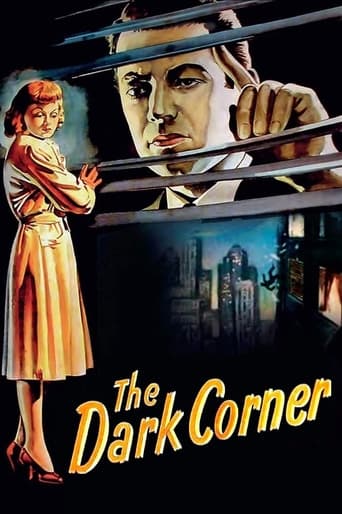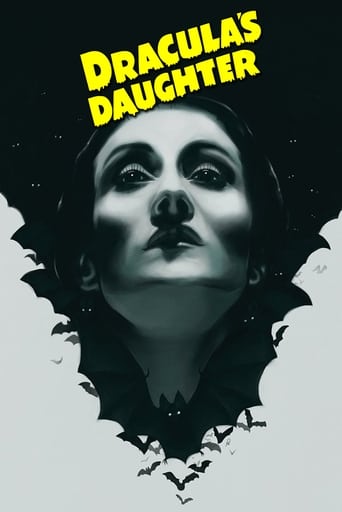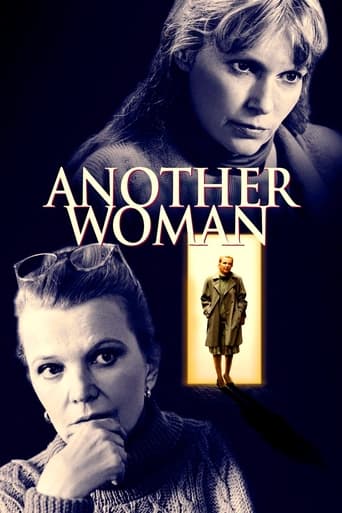Darling (1965)
The swinging London, early sixties. Beautiful but shallow, Diana Scott is a professional advertising model, a failed actress, a vocationally bored woman, who toys with the affections of several men while gaining fame and fortune.
Watch Trailer
Free Trial Channels
Cast


Similar titles
Reviews
A Brilliant Conflict
This is one of the few movies I've ever seen where the whole audience broke into spontaneous, loud applause a third of the way in.
It’s fine. It's literally the definition of a fine movie. You’ve seen it before, you know every beat and outcome before the characters even do. Only question is how much escapism you’re looking for.
Easily the biggest piece of Right wing non sense propaganda I ever saw.
This was supposed to be the satire on the movers and shakers of the sixties. Sorry I thought it was rubbish when it was released, and in 2010 it still is terrible. An ambitious model in the swinging sixties sleeps her way to the top - yes, it's Evita in the UK! It too self consciously tries to be a Britflick aping of Antonioni (La Notte and Blow UP) and Fellini (La Dolce Vita and 8 and a half) and it does not work - witness the dreadfully arch 'cinema verite' sequence and the partner-swapping orgy scenes. Really the continentals do that sort of thing much much better - even the actors look embarrassed!Satire? Um the best scenes are actually a satire on British society in the fifties, eg the scene in the casino is actually the writer having a go at the Princess Margaret/Billy Wallace Soho set showing old decrepit aristos clinging to privilege after the War. But nowhere does the movie really have a go at the hypocrisy surrounding the MacMillan/Wilson years - it merely portrays a few louche unbelievable characters indulging in sexual freedom away from the gaze of society as a whole. Let's face it Julie Christie's character is really an upper middle class aspirant trying to get ahead to join the beastly aristos. The direction and writing is plodding - Raphael was much better in 'Nothing But The Best.' The acting is fine apart from Julie Christie (who wears a lot of nice clothes) who just pouts a lot and keeps telling us she is bored in a very actressy sort of way. I thought then she was not much of an actress, and 'Doctor Zhivago' confirmed it. Her looks got the critics, who of course inhabited the world portrayed on screen so though it was a marvellous expose, dahling! When in fact the film is a bore with nothing really to claim your attention either from an historical point of view or interest in the characters (we got very early on the Laurence Harvey was Mephostophiles so why keep it going for so long?) Of course, you may ask, why do we not see 'Darling' on our TV screens? Well, it is a story about a vacuous, scheming, bed hopping, blonde clothes horse, who ends up trapped in a loveless marriage where her husband has other women, and is called Princess Diana! Um, perhaps, the film was a prescient look into the future of the celebrity culture!
Darling is known generally as an iconic "Sixties" movie. It is at once a product of its time and a still-born anachronism. Though conceived and shot in 1964-65, there is nary a hint of the Beatles and their ilk, who by the time this film went in front of the cameras were unquestionably the major pop cultural phenomenon on earth, and certainly in Britain where this story takes place. The characters who parade before us in this slickly packaged satire are far more evocative of the earlier "La Dolce Vita" period. Perhaps the newly emerging youthful counterculture is absent because the groupings visited here are, in contrast to the many- millioned teenage Beatles fans, older, more rarefied and further up the social ladder in corporate boardrooms, haute-couture industry gatherings, mainstream television production units, the profit-driven B-movie exploitation industry, and the haunts of continental royalty. Sparkling and memorable as it is, the musical scoring by John Dankworth was also dated by mid-1965 when this film came out.The satire is often from the finger-pointing, underscoring school. Best example: A portly dowager in furs at a charity function stuffs an hors d'oeuvre into her mouth with a bejeweled hand as a speaker pompously thanks those present for fighting the scourge of hunger in the world.Screenwriter Frederic Raphael and director John Schlesinger organize their material in semi- documentary fashion with voice-over narration by the title character, Diana Scott (Julie Christie) in order to reveal her hypocrisy as she describes various episodes in her life while the unfolding screen actions ironically contradict her words. She portrays herself verbally as innocent, sensible and basically decent when in fact she's selfish, dishonest and miserable. The underlying causes of her selfishness, dishonesty and misery are neither explained nor explored, but she is presented in a way that encourages us to regard her as a micro-consequence of the crass, materialistic, soulless macro-society around her. The episodes in her bumpy road to despair succeed one another briskly enough to keep us diverted and shaking our heads at the imperfect human types on display. The arc of the story takes Diana higher and higher on the material plane until she can rise no more, only to find emptiness at the top. The point seems to be "looks, money and prestige aren't everything – but look how entertainingly we're presenting that platitude." This film and Doctor Zhivago, released shortly after, made Julie Christie the most honored and publicized actress in the world for about a year and it's interesting to compare her Diana Scott with her Lara character in David Lean's epic. Lean, a stern and experienced taskmaster, got more solid acting out of her. Schlesinger's grip is looser, resulting in a more uninhibited but less disciplined performance. As one flavor of the media-created "It" girls of the Sixties (Ann Margret, Twiggy, Goldie Hawn being other flavors) she embodied a certain attitude toward life that was in the air in the industrialized world in those days, an informality of demeanor which some would call proletarian or others would call "beatnik"; hers was a looser, more naturalistic look, a beauty outside the parlor. Julie Christie was beautiful without a speck of makeup while the wind was blowing her hair in four different directions and seemed to be an entirely different person depending on which angle she presented to the camera or what kind of light was bouncing off her partly chiseled, partly soft and sensuous features. Her very presence lent a depth that may not have been written into the character. With another actress, one can only wonder how effective this film would have been. Her chief fellow players, Laurence Harvey and Dirk Bogarde, give splendid support, as does the rest of the cast. But the spotlight is definitely on Julie; it is her showcase.
Despite beings graced by one of the finest screen performances in post-1950 cinema - Julie Christie as "Diana Scott" - this film as a whole has become somewhat forgotten - infrequently revived and often dismissed as a dated, overly-trendy 1960s period piece (as can be seen by reading many of the IMDb reviews on this site!). Seen as a bit of production design, DARLING is indeed wholly of its time, but if you can you look past the clothes, hair, music and now-faintly-ridiculous slang, DARLING becomes something quite different - a serious exploration of the transformation in manners and morals which overwhelmed the world in the mid-60s and continues to shape all our lives today. DARLING is seen by many as a "satire," but for this reviewer, DARLING is something more - a conservative film in the true sense of the word, a work which holds the new morality of our age up to a harsh light and forces us to ask some very hard questions about ourselves and the world in which we live now. DARLING tells a very traditional story - that of an ambitious woman who uses her face and figure to climb into society's upper echelons - but unlike similar characters such as Vanity Fair's Becky Sharp or Edith Wharton's Undine Spragg, Diana Scott is less interested in rising to the top of Europe's landed aristocracy or the American Old Guard than she is in securing a place in the "New Aristocracy" of Cafe Society, where lineage and breeding matter less than looks, money and publicity. As the story opens, Diana Scott is a young English rose gifted less with brains and ambition than an uncanny knack for being in the right place at the right time. Wanting something more than her council-flat, working-class background can provide, Diana chooses marriage as her way out, but she quickly sheds her bumbling teenage husband when she meets Robert Gold (Dirk Bogarde), a well-known (and married) TV journalist who becomes infatuated with the free-spirited young model and eventually succumbs to her demand that he leave his wife for her. Domestic bliss proves short-lived, however, as Robert's quiet, scholarly, and intellectual life-style bores the restless Diana out of her wits. Seeking a more exciting world than Robert can offer, Diana allows rich cad Miles Brand (Lawrence Harvey) to seduce her. Becoming part of his fast-moving "swinging" set, Diana heads off to the Continent and finds herself running around with a wild crowd and becoming more and more well-known as a model, actress, and "personality" despite her complete lack of artistic talent - in one pivotal scene, Diana actually flees an important audition! Eventually, Diana attracts the attention of a minor European royal - an Italian Prince - who courts her and eventually marries her in due course of time. The marriage ensures Diana a place in the rarefied world of international celebrity at the cost of her personal happiness, since it rapidly becomes obvious that she is nothing more than a trophy wife - the Prince leaves his new wife buried in the country to make incommunicado trips to Rome, ostensibly to visit his "mother". Realizing that she has made a terrible mistake, Diana escapes to England and tries to reconnect with Robert Gold - whom she now thinks was her one true love - and for one night she succeeds, but Robert quashes her fantasies of a new life together very fast when he informs her that he agreed to meet her for the sake of old times and in fact has no intention of allowing her back into his life. Rejected, Diana returns to Italy, hounded by the press and facing an uncertain future. Julie Christie is simply flawless as Diana, who cannot be blamed for the vanity and superficiality of the world around her and still manages to come across as an innocent no matter how many men she sleeps with or how many drugs she takes. DARLING is sometimes a bit heavy-handed and obvious in parts, but it remains valuable today as a critique of the new manners and morals of the 60s. The film's cinematographic style is extraordinary - Schlesinger and his DP shoot the tale in a cold, distant fashion which prevents us from identifying ourselves fully with any single character and makes the film seem like a documentary rather than a work of fiction. DARLING's detached, cold style sheds an interesting light on the characters and their activities - we are encouraged to observe, watch, evaluate and judge these rootless, disconnected, superficial people along with the society they inhabit. Of course, the film's final irony is that Diana Scott spends the whole thing longing for deep intimacy and true connection with another, only to lose the love of her life because she was incapable of appreciating him until it is too late, and preferred glitter to gold. Don't miss this remarkable picture!.
It is not original to observe that nothing dates faster than last year's fashion, but in the case of John Schlesinger's Darling that observation is very apt. Time has not been kind to this three-Oscars winner, and as the years roll by, time gets ever more cruel. There are some films from 40/50/60 years ago which still stand up, for many reasons, each time you see them, but Darling is left far behind. Made in 1965, I suspect it was seen as 'daring' and 'modern' with its, for the time, open attitude to sex and its less than discreet treatment of homosexuality. The film was released two years before gay sex was decriminalised in Britain, but gayness permeates the whole enterprise. Schlesinger, Dirk Bogarde and Roland Curram were all gay, and even Laurence Harvey, who in his private life was also something of a heterosexual wolf and married three times, also batted for both sides and all too often comes over as camp a row of tents. The film is credited as being the brainchild of Schlesinger, Joseph Janni, the producer and Frederic Raphael, who also wrote the screenplay, and one feels that they were rather taken with the idea of being 'shocking'. Elsewhere this has been described as a 'satire' on swinging London, but if that is the case, whatever satire was intended pretty much passed me by. The trouble is that despite its three Oscars - for Julie Christie, for Raphael's script and for the costumes - it just isn't very good. The whole enterprise is two dimensional and there is no character development at all. We care not a jot for the characters (except, in my case, the Italian prince. There might be hints that he, too, is a bit of a cad and no one in his right mind would buy his explanation that when he is in Rome, he will be sharing a mug of Horlicks with his mum and watching the ten o'clock news. Nevertheless, I did feel sorry for him that he had landed himself with such a high-maintenance new bride.) Darling herself - Diana Scott - comes over as rather too nice to be the amoral model sleeping her way to the top, or if not 'nice' then 'well brought up'. You get the feeling that her idea of doing something really bad would be to forget to write a thank-you note. She also seems rather too dim to be a scheming hussy, and I don't for a second buy the idea that she was merely interested in her modelling career. She had wannabe shires housewife written all over her. As for Dirk Bogarde, am I really the only guy to think that he is all too often very wooden, that when he acts, he is all to obviously 'acting'? He was perfect for all those lightweight Doctor comedies which kept the British nation quiet in the Fifties, but when he branched out into 'serious' roles, he couldn't quite seem to cut it. It will not have been public knowledge at the time that Bogarde, too, was gay - as a former matinée idol, he had a formidable female following - but he remains wholly unconvincing as a 'wronged man'. And furthermore as a cad arts journalist who selfishly jettisoned his wife and three children to shack up with a spoilt model, he does not deserve too much of our sympathy. Every time he got upset or angry with Julie Christie, he just seemed like a middle-aged queen in a spat with his lover. Laurence Harvey, comes over rather better as the cynical and amoral seducer, but he, too, has too many quotable lines to make the part feel normal. (Incidentally, Janni was Italian and his background was much in the realistic school of film-making, so it is ironic that, despite its would-be trendy facade, Darling's heritage all to often comes over as the brittle, old-fashioned middle class stage drama the kitchen sink school was intended to usurp.) Raphael's script is far too full of attempted epigrams and quotable quotes. It is far, far too self-conscious and clever-clever for its own good. I only watched this film because I got hold of a free DVD of it at the office, and I don't feel my life would have been any the poorer had I not seen it. It simply isn't half as good in retrospect as it was thought to be at the time. These things happen. Sad, but true. If this comes your way, either on TV or stuck inside your daily newspaper, first of all see whether you might not have something better to do. Don't be fooled by the Oscars. Oh, and why is sodomy and odd sexual practice always associated with 'being sophisticated'. Does that mean the rest of us are plain old unsophisticated hicks?

